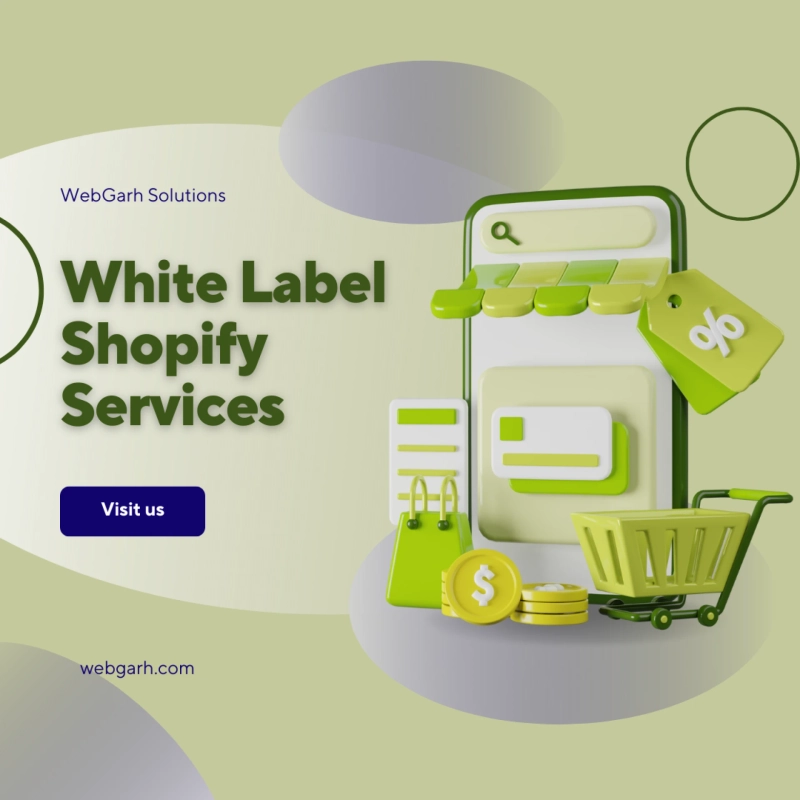Shopify, the popular e-commerce platform, has gained immense popularity among entrepreneurs and businesses for setting up their online stores. With its user-friendly interface and extensive features, Shopify has become a go-to platform for creating online businesses. One of the powerful features offered by Shopify is white labeling, which allows companies to sell products or services under their own brand name.
This article will provide a comprehensive guide to Shopify white labeling, including what it is, how it works, and its benefits.
What is Shopify White Label?
Shopify white label allows businesses to sell products or services created by another company or manufacturer under their own brand name. With white labeling, businesses can customize the branding, packaging, and design of products to match their own brand identity. This allows businesses to create a seamless and cohesive brand experience for their customers without investing in manufacturing or product development.
How does Shopify White Label work?
Shopify white labeling involves three main parties: the manufacturer, the retailer (business using Shopify), and the end consumer (customer).
Here's how the process works:
The manufacturer creates products: The manufacturer designs and manufactures products or services that other businesses can sell under their own brand name. This can include physical products like clothing, accessories or digital products like software or ebooks.
Retailer sets up an online store: The retailer, who wants to sell these products under their own brand name, sets up an online store using Shopify. They can choose a Shopify plan that suits their needs and customize their online store to reflect their brand identity.
The retailer adds white-labeled products: The retailer adds white-labeled products or services to their Shopify store. They can customize the product descriptions, images, and other details to align with their brand.
End consumer purchases from a retailer: The end consumer visits the retailer's online store browses the products, and makes a purchase. The retailer handles the order fulfillment, including packaging and shipping, while the manufacturer remains behind the scenes.
Benefits of Shopify White Label:
Shopify white label offers numerous benefits for businesses, including:
Branding control: With white labeling, businesses can maintain complete control over their brand identity, including product packaging, design, and branding. This allows companies to create a consistent customer brand experience and build brand loyalty.
Cost-effective: White labeling eliminates the need for businesses to invest in product development, manufacturing, and inventory management. This can save companies significant costs and resources, making it a cost-effective option for launching new products or services.
Faster time to market: Since the manufacturer cares about product development and production, businesses can bring products to market faster with white labeling. This allows businesses to capitalize on market trends and stay competitive.
Scalability: White Label Shopify allows businesses to scale their operations without worrying about production capacity or inventory management. Businesses can easily add new products or expand their offerings to meet customer demand.
Flexibility: With white labeling, businesses can choose from a wide range of products or services offered by different manufacturers. This allows enterprises to curate offerings and cater to their target audience's preferences.
Customization: White labeling allows businesses to customize the products or services to align with their brand identity. This can include adding custom labels, packaging, or other branding elements to create a unique and differentiated product offering.
Customer trust: By selling products under their own brand name, businesses can establish trust and credibility with their customers.
Conclusion
Shopify white label is a powerful feature that allows businesses to sell products or services under their brand name without investing in manufacturing or product development. It will give companies complete control over their brand identity while also benefiting from cost savings, faster time to market, scalability, and customization options. With white labeling, businesses can create a seamless and cohesive brand experience for their customers, leading to increased customer trust and loyalty.


